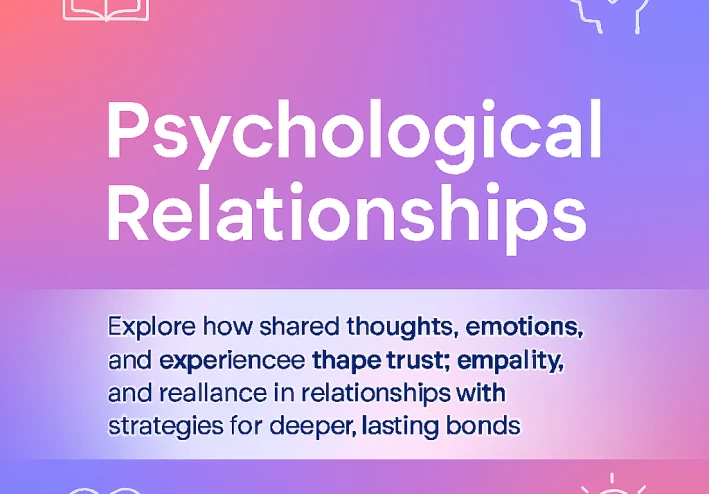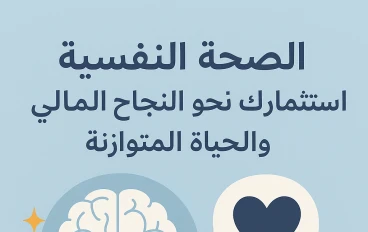
# Title: Psychological Relationships
Psychological Relationships
Explore how shared thoughts, emotions, and experiences shape trust, empathy, and resilience in relationships with strategies for deeper, lasting bonds.
Introduction
Psychological relationships form the invisible architecture that governs how we connect, communicate, and collaborate. From early attachments with caregivers to complex interactions in professional settings, these bonds influence our sense of safety, belonging, and purpose. Understanding their dynamics empowers individuals and teams to cultivate deeper trust, foster empathy, and navigate conflict constructively. This article unpacks the foundations of psychological relationships, highlights common obstacles, and provides actionable strategies to strengthen connections that endure life’s challenges.
The Foundations of Psychological Relationships
Shared Meaning
When people align on core values, goals, or perspectives, they create a common interpretive framework. This shared meaning transforms isolated interactions into cohesive experiences, accelerating rapport and reinforcing a sense of “we” rather than “you and me.”
Emotional Resonance
Emotional resonance is the capacity to sense and reflect another person’s inner state—joy, anxiety, frustration—as if it were our own. This empathetic mirroring deepens emotional intimacy, validates individual experiences, and promotes mutual support.
Reciprocity
Balanced give-and-take is the hallmark of sustainable relationships. Reciprocity ensures that emotional investments—time, attention, encouragement—are acknowledged and returned, reinforcing a cycle of trust and goodwill.
Cultivating these pillars lays the groundwork for relationships that can weather stress, change, and conflict.
Emotional Intelligence: The Catalyst for Connection
Emotional intelligence (EI) is the ability to perceive, understand, manage, and leverage emotions in oneself and others. High EI enhances psychological relationships in several ways:
Empathy: Recognizing subtle emotional cues—tone of voice, micro-expressions, body language—and responding appropriately.
Self-regulation: Managing impulsive reactions and choosing thoughtful responses that preserve respect and harmony.
Social Awareness: Reading group dynamics, sensing unspoken tensions, and adapting communication to foster inclusion.
Conflict Management: Using emotional insight to de-escalate disagreements and transform them into opportunities for deeper understanding.
Developing EI involves practices such as mindfulness meditation, journaling to label and explore emotions, and soliciting feedback from trusted peers to uncover blind spots.
Core Components of Healthy Psychological Relationships
Mutual Trust
Built through consistent honesty, reliability, and transparency. Trust grows when promises are kept and mistakes are acknowledged openly, creating a foundation for safe, candid dialogue.
Open Communication
Involves honest expression of thoughts and feelings paired with active listening. Techniques like using “I” statements, paraphrasing to confirm understanding, and asking open-ended questions prevent misunderstandings and foster clarity.
Emotional Support
Entails validating each other’s experiences without immediately seeking to fix or judge. Phrases such as “That sounds challenging, I’m here for you” provide a safe space for vulnerability and encourage resilience.
Respect for Boundaries
Honoring personal limits—whether emotional, physical, or intellectual—signals respect for individual autonomy. Clear boundaries prevent burnout, reduce resentment, and sustain long-term connection.
Overcoming Psychological Barriers
Even strong relationships encounter obstacles. Common barriers include:
Fear of Vulnerability: Withholding emotions to avoid potential hurt, which stunts intimacy.
Negative Self-Talk: Internal doubts that erode confidence and taint communications.
Projection: Attributing one’s own insecurities or frustrations onto others, creating unnecessary conflict.
Poor Listening Habits: Formulating responses before fully hearing the other person, leading to misunderstandings.
Identifying these barriers is the first step toward replacing them with healthier patterns.
Strategies to Strengthen Psychological Bonds
Practice Active Listening
Give undivided attention—maintain eye contact and eliminate distractions.
Paraphrase or summarize what you’ve heard to confirm understanding.
Express Appreciation Consistently
Acknowledge specific qualities or actions.
Send quick notes or messages to highlight someone’s positive impact.
Schedule Regular Check-Ins
Carve out dedicated time for uninterrupted, honest conversation.
Use open-ended questions (e.g., “What’s on your mind?”) to encourage depth.
Develop Shared Rituals
Create recurring activities—weekly walks, brainstorming sessions, or gratitude rounds.
Celebrate milestones together to build positive collective memories.
Invest in Continuous Learning
Read books or attend workshops on topics like empathy, communication, and conflict resolution.
Role-play challenging scenarios to practice new skills in a safe environment.
Conclusion
Psychological relationships are the cornerstone of personal well-being, team cohesion, and organizational success. By nurturing shared meaning, emotional resonance, and reciprocity, and by cultivating emotional intelligence, we can dismantle barriers and forge bonds that endure. Start today: apply these strategies, solicit honest feedback, and witness your connections transform into sources of strength, inspiration, and lasting fulfillment.





























